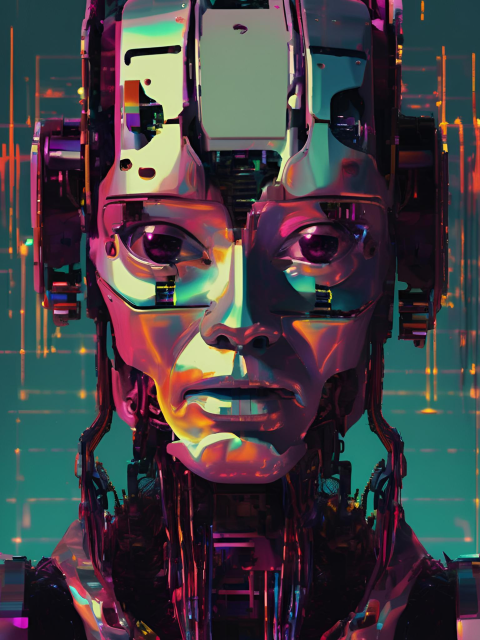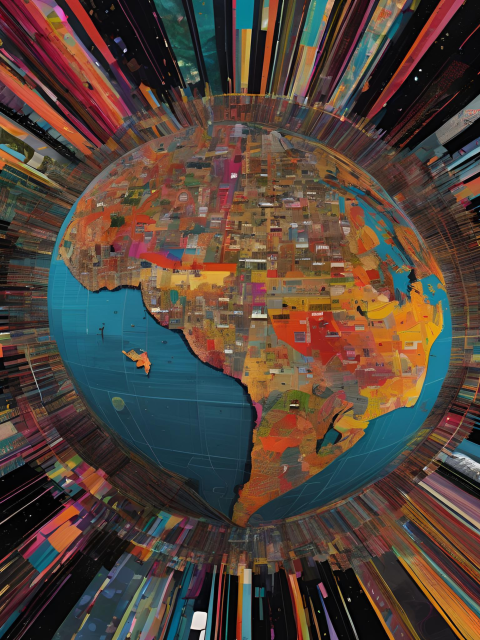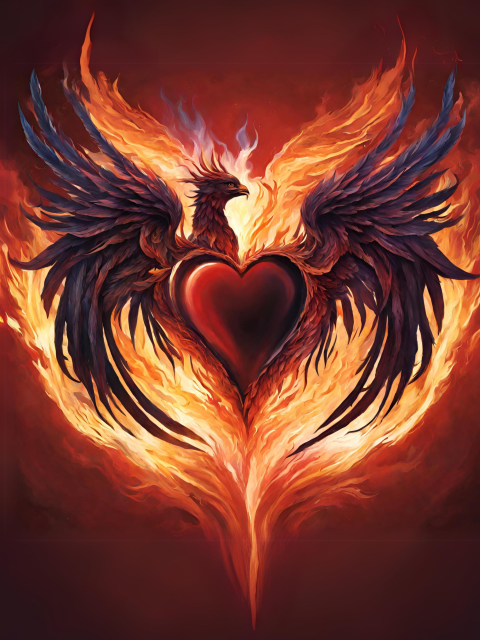Introduction to New Media Art
New media art represents a contemporary art form that harnesses technology to explore new dimensions of artistic expression. Originating in the late 20th century, it encompasses various forms including digital art, video art, interactive installations, and virtual reality. This genre integrates technological advancements into the creative process, offering fresh perspectives and engaging with modern technological experiences. By merging art with digital and interactive media, new media art pushes the boundaries of traditional art and invites audiences into a dynamic, evolving dialogue with technology.
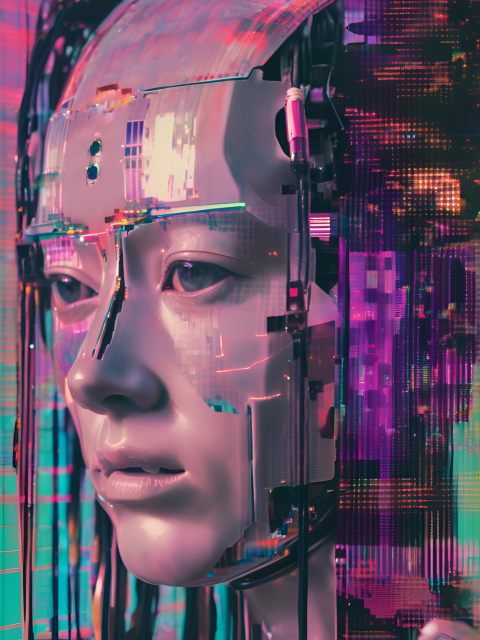
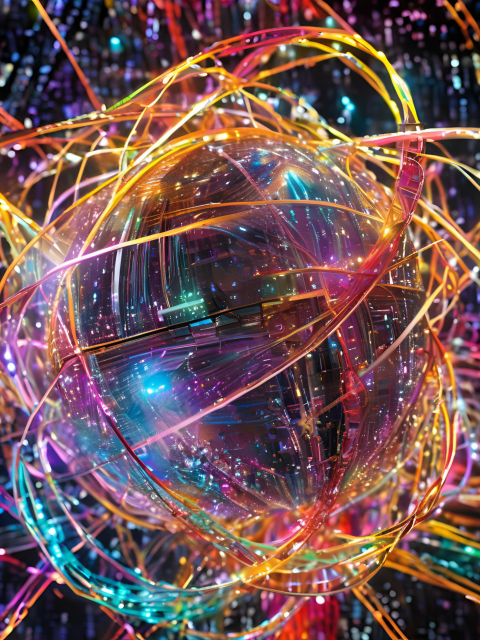
Characteristics of New Media Art
- Technological Integration: New media art utilizes contemporary technology, from digital tools and software to hardware and networked systems.
- Interactivity: Many new media artworks involve audience interaction, allowing viewers to actively participate and influence the art.
- Multimedia Approach: It often combines multiple forms of media such as video, sound, text, and digital imagery, creating a rich, layered experience.
- Ephemeral and Evolving: Some new media artworks are transient or continually changing, reflecting the rapidly evolving nature of technology.
- Digital Culture: It frequently addresses themes related to digital life, virtual spaces, and the impact of technology on society.
Mediums and Techniques
- Digital Art: Art created using digital technologies, including computer graphics, 3D modeling, and digital painting.
- Video Art: Artworks that use video technology as a medium, often featuring experimental film, video installations, and digital animation.
- Interactive Installations: Artworks designed to engage viewers through interactive elements, such as sensors, touchscreens, and motion detection.
- Virtual Reality (VR): Art created for immersive VR environments, offering viewers a fully digital space to explore and interact with.
- Augmented Reality (AR): Art that overlays digital elements onto the real world, accessible through devices like smartphones and AR glasses.
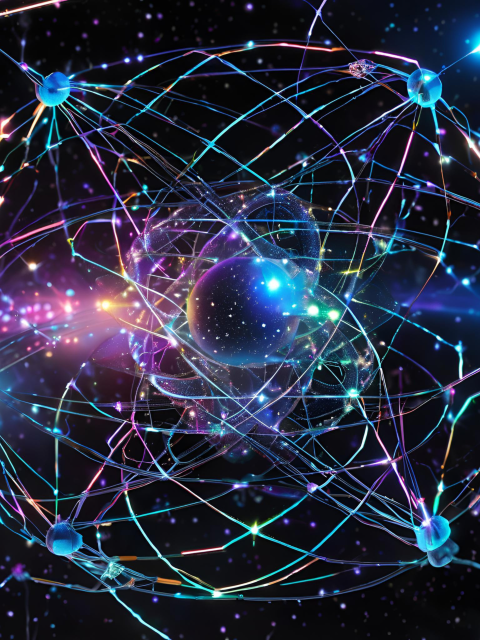
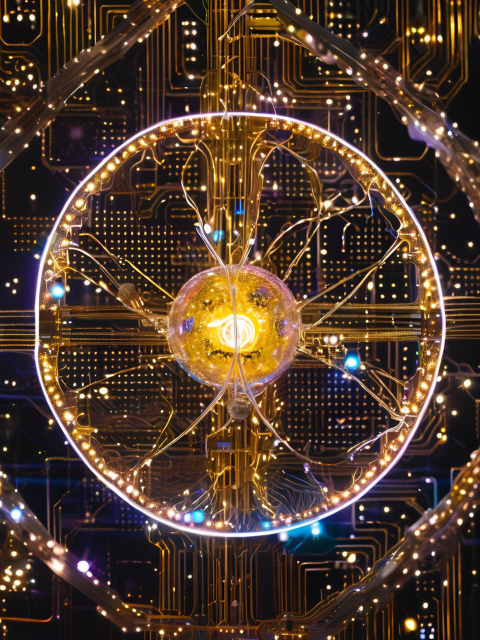

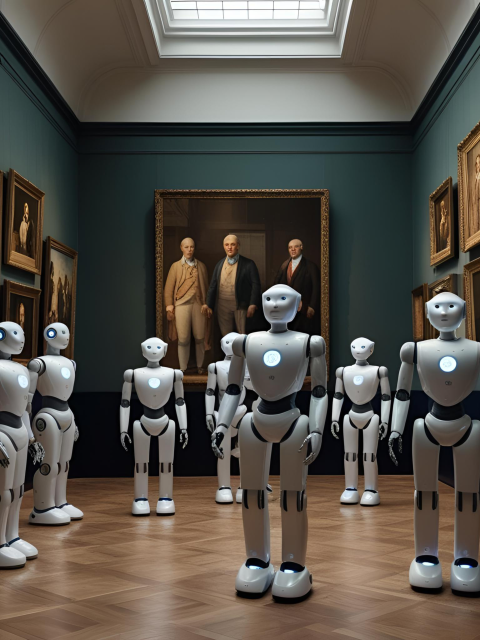
Artistic Expression
- Exploration of Digital Space: New media art often delves into virtual and augmented realities, challenging traditional notions of space and presence.
- Audience Engagement: By involving viewers in the creation or experience of the artwork, it fosters active participation and personal connection.
- Technological Reflection: It reflects on the impact of technology on contemporary life, examining themes such as digital identity, surveillance, and communication.
- Multisensory Experience: The integration of sound, image, and interactive elements creates a multisensory art experience that engages viewers on multiple levels.
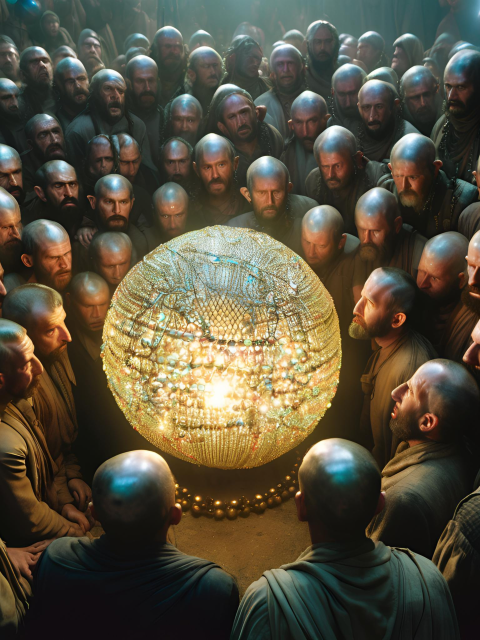
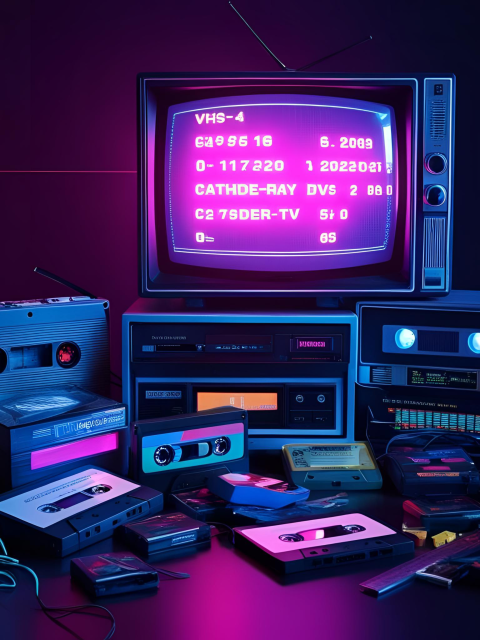
Functionality
- Interactive Experiences: New media art creates interactive experiences that allow audiences to engage with and influence the artwork.
- Technological Innovation: It explores and pushes the limits of new technologies, offering innovative approaches to artistic creation and presentation.
- Cultural Commentary: Many new media artworks provide commentary on contemporary issues related to technology, media, and society.
- Educational Value: New media art can serve as an educational tool, using interactive and digital elements to teach and inform about various topics.
Locations
- Art Galleries and Museums: Exhibitions of new media art often take place in galleries and museums equipped with the necessary technology.
- Online Platforms: Digital art is frequently showcased on websites, social media, and virtual galleries, making it accessible to a global audience.
- Public Spaces: Some new media artworks are displayed in public spaces, such as interactive installations or digital projections on buildings.
- Virtual Worlds: VR and AR art can be experienced in virtual environments, offering immersive experiences through digital devices.

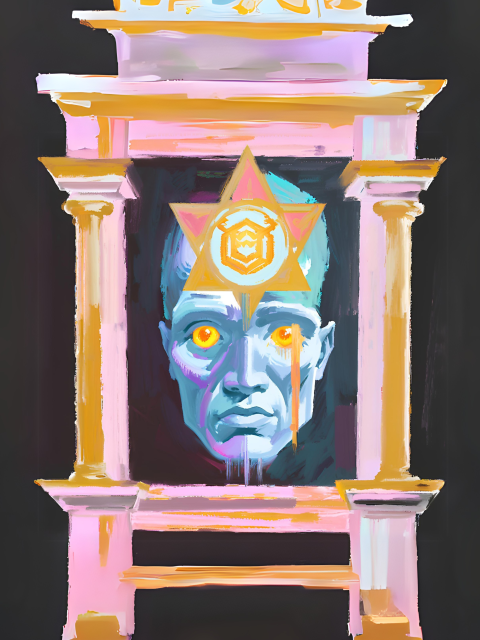
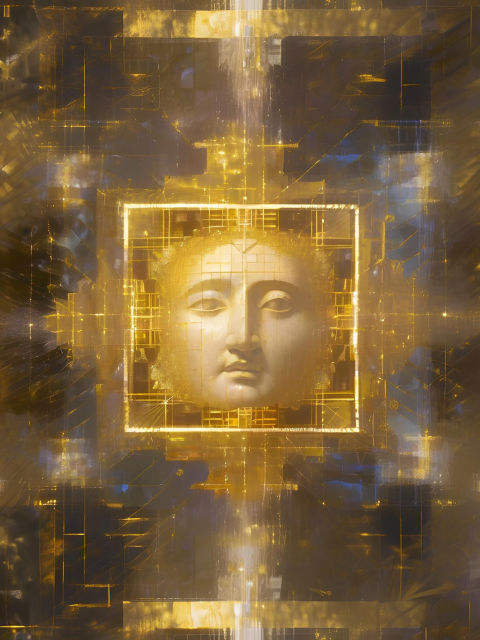
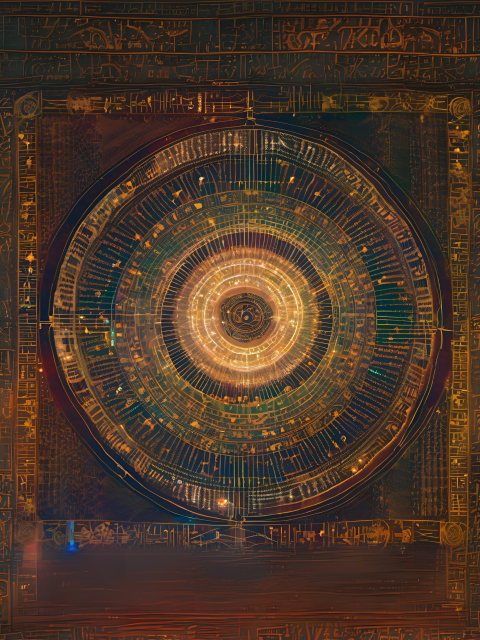
Themes of New Media Art
- Digital Identity: Exploring the concept of identity in the digital age, including issues of privacy, representation, and self-expression.
- Virtual and Augmented Realities: Examining the nature of virtual spaces and how they intersect with and transform physical reality.
- Technological Impact: Reflecting on how technological advancements affect society, culture, and human interactions.
- Interactive Engagement: Investigating the role of audience participation in the creation and perception of art.
Key Examples
- Rafael Lozano-Hemmer (Interactive Art): Known for works such as “33 Questions per Minute,” which engages viewers through real-time text generation and interaction.
- Olafur Eliasson (Multimedia Installations): Creator of immersive installations like “The Weather Project,” which uses light and fog to transform gallery spaces and engage with environmental themes.
- Jenny Holzer (Text Art): Uses LED displays to present provocative text-based art, addressing social and political issues with a digital medium.
- James Turrell (Light Art): Focuses on light and space in works such as “Roden Crater,” creating immersive experiences that challenge perceptions of reality.
- Yoko Ono (Interactive Art): Incorporates interactive elements in her art, such as “Cut Piece,” where audience participation is central to the work’s meaning.
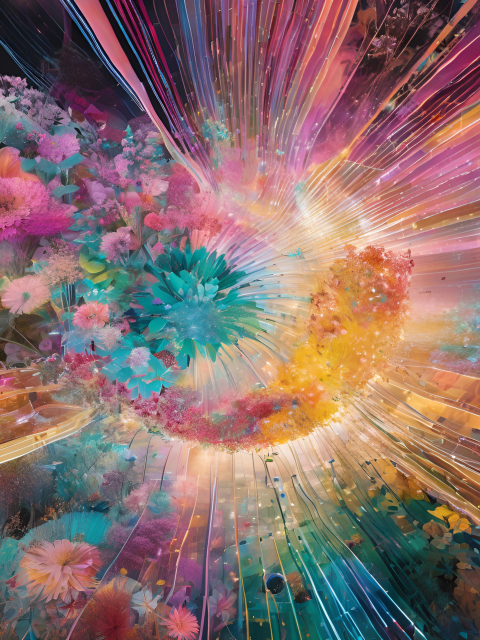
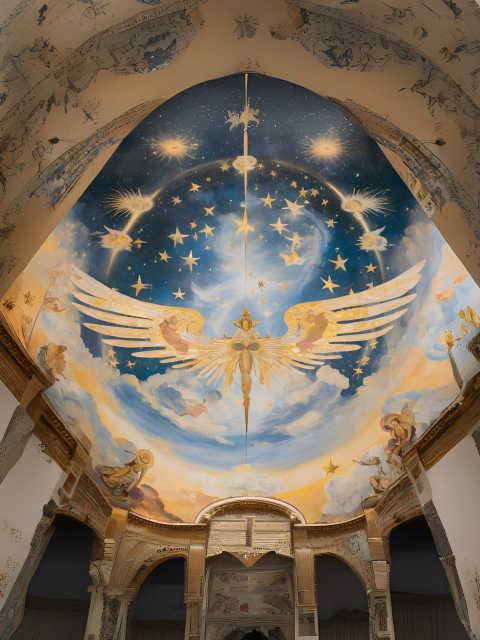
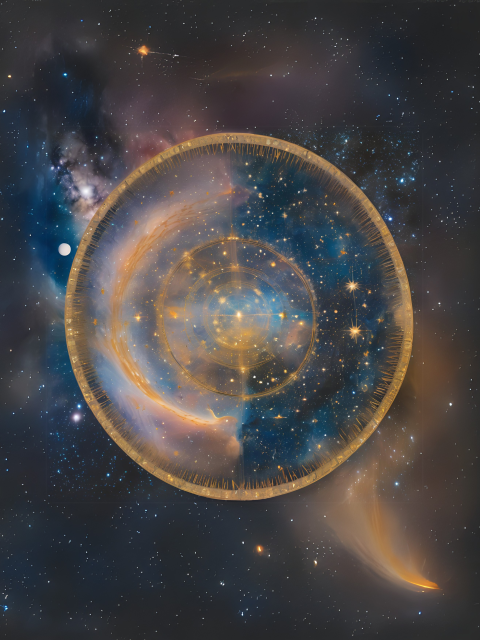
Description
New media art is a contemporary genre that integrates technology into artistic practice, creating interactive and immersive experiences. It encompasses digital art, video art, interactive installations, and VR/AR experiences, reflecting on the impact of technology and engaging audiences in novel ways. By leveraging the latest technological advancements, new media art pushes the boundaries of traditional art forms and offers fresh perspectives on contemporary issues.
Architectural Style
New media art often interacts with and transforms architectural spaces through digital projections, interactive installations, and immersive environments. This integration enhances or redefines the visual and spatial qualities of architectural settings, creating dynamic and context-specific art experiences.
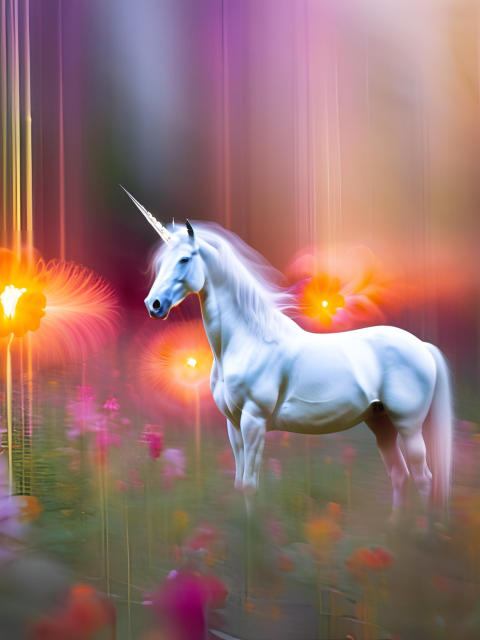
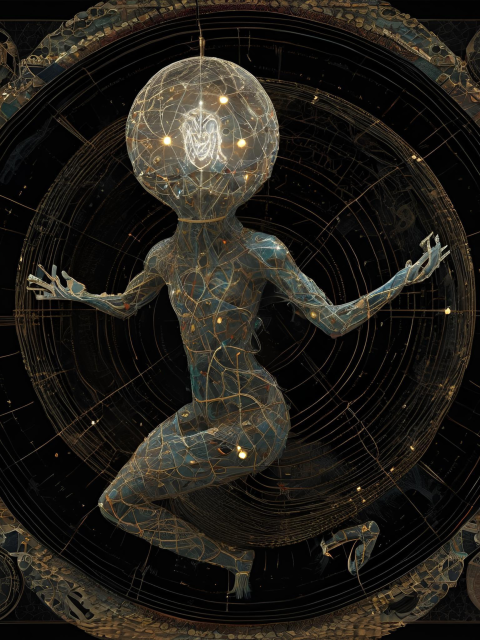
Historical Context
Emerging alongside technological advancements in the late 20th century, new media art reflects the rapid evolution of digital technology and its impact on art. It has developed from early experiments with computer and video art into a diverse field that explores the intersection of technology and artistic practice.
Construction Techniques
- Digital Creation: Utilizing software and digital tools to design and produce visual and audio elements.
- Interactive Systems: Developing systems and interfaces that respond to viewer input or environmental conditions.
- Virtual and Augmented Reality: Creating immersive and interactive experiences using VR and AR technologies.
- Projection Mapping: Using digital projections to transform and enhance architectural surfaces and public spaces.
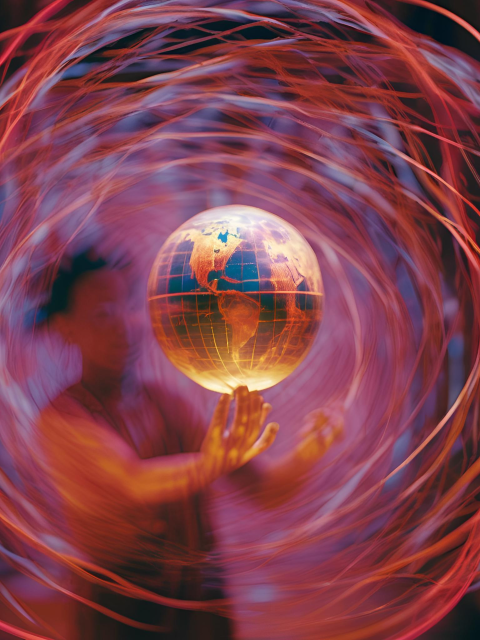
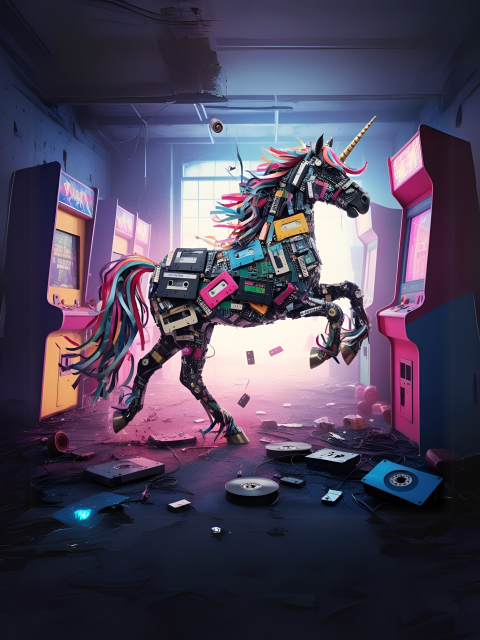
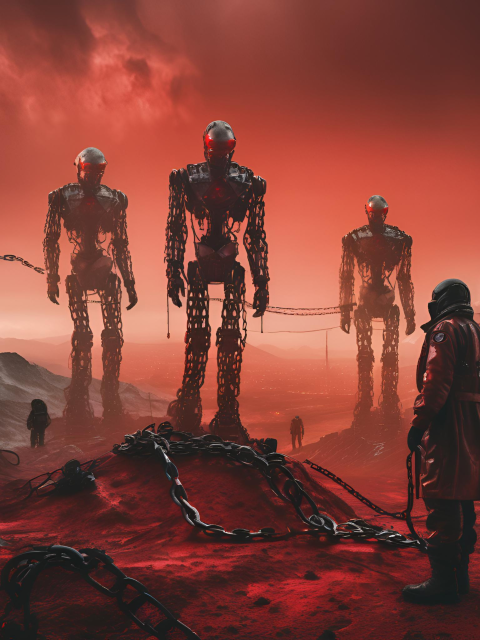
Historical Context of Notable Artists and Works
- Rafael Lozano-Hemmer’s “33 Questions per Minute” (1995): An interactive work that uses real-time text generation to explore communication and cognitive processes.
- Olafur Eliasson’s “The Weather Project” (2003): An installation that uses light, fog, and mirrors to create an immersive environment and engage with environmental themes.
- Jenny Holzer’s “Blue Purple Tilt” (2007): A text-based artwork presented on LED displays, addressing social and political issues through digital media.
5 Simple Prompts for AI-Generated Art
- “Create an interactive digital artwork that responds to viewer input, exploring themes of identity and technology.”
- “Design a virtual reality environment that immerses viewers in a narrative about digital culture and its impact on society.”
- “Generate an augmented reality artwork that overlays digital elements onto a real-world setting, creating an engaging and interactive experience.”
- “Visualize an interactive installation that uses sensors and projections to transform a physical space into a dynamic and responsive artwork.”
- “Imagine a multimedia art piece that combines video, sound, and digital imagery to explore the concept of virtual and augmented realities.”
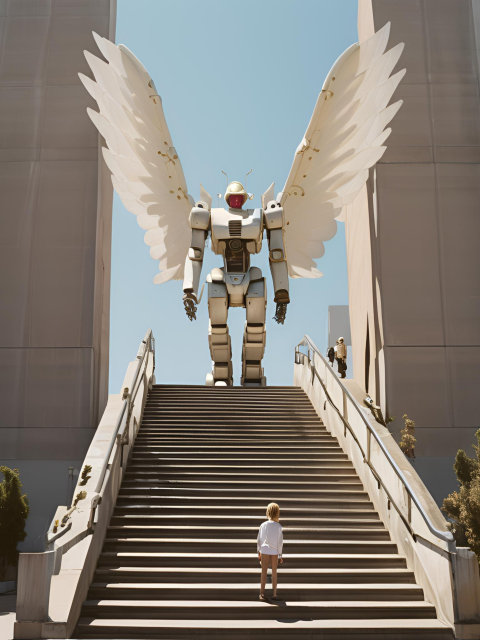
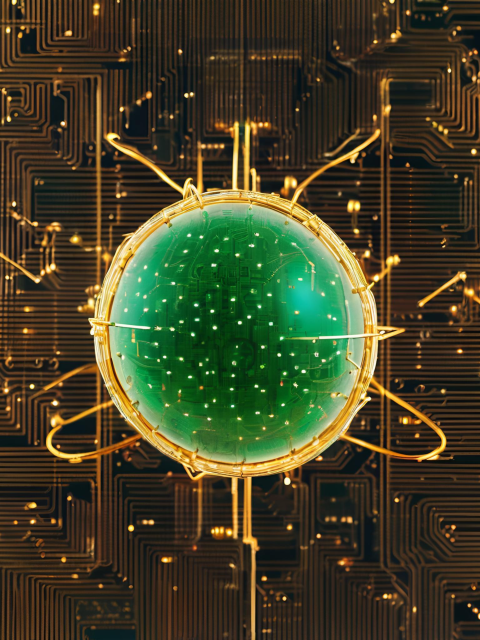
Conclusion
New media art represents a dynamic and innovative approach to artistic expression, utilizing technology to create interactive and immersive experiences. By integrating digital tools and exploring contemporary themes, new media art challenges traditional boundaries and engages audiences in new and meaningful ways. Its diverse styles and techniques continue to evolve with technological advancements, offering fresh perspectives on art and its role in the digital age.

